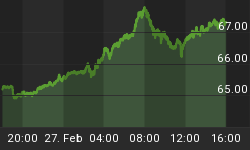Last week, with Alan Greenspan and John Snow testifying before Congress, irate lawmakers bombarded them with questions as to when and how the Administration plans to "get tough" with China for its unfair trade practices. The scene is straight out of Alice in Wonderland. It is hard to fathom how these Congressmen could be so clueless as to the extent that China subsidizes the U.S. economy, and directly finances the very budget deficits these spendthrifts so irresponsibly vote to produce.
Exactly what is it that they want to punish China for doing? Providing Americans with high quality, low cost consumer goods? Artificially enhancing our standard of living? Keeping a lid on our inflation rate? Suppressing our interest rates, and propping up our housing prices? If they actually succeeded in convincing China to stop selling us all these inexpensive products and lending us back their earnings at low interest rates, what do they think the consequences would be for Americans, to say nothing of their own re-election prospects? In fact, short of a formal declaration of war, the single most damaging thing that China could do to America is exactly what our politicians are demanding. What is even more ironic is that giving in to these demands is also the best thing China could do to improve the lives of its own citizens.
Of particular concern to our politicians was last week's $18.5 billion bid by Chinese oil company CNOOC for Unocal Corp. This bid coincides with China's Haier Group's $1.3 billion bid for Maytag, and follows Chinese computer giant Lenovo's $1.75 billion acquisition of IBM's personal computer business. What is particularly ironic about their apparent outrage is that while they have no problem legislating policies, which encourage American profligacy, they complain when foreigners actually use some of their resulting trade surpluses to buy something other than U.S. treasury bonds.
However, these three deals, totaling $21.55 billion, are just drops in an enormous bucket. This year alone America's current account deficit is likely to be $800 billion. To put this number in its proper perspective, $800 billion is equal to the combined market capitalization of the following fifteen Dow Jones companies: Alcoa, American Express, Boeing, Caterpillar, Coca-Cola, DuPont, General Motors, Hewlett-Packard, Home Depot, Honeywell, 3M, McDonalds, Merck, SBC Communications, and Walt Disney.
In other words, to finance just one year's purchases of consumer electronics, granite counter-tops, vacations, automobiles, furniture, appliances, clothing, toys, and net interest and dividend payments, Americans will basically give away the equivalent of half of the companies that comprise the Dow Jones Industrial Average.
At the moment however, foreigners are content to invest the vast majority of that $800 Billion in U.S. treasuries, or other debt instruments. But when they finally lose confidence in the future purchasing power of the dollar, or when Americans can no longer afford to pay the interest on all those obligations, expect them to rush to exchange these debt instruments for equity. When they do, in the absence of government restrictions to limit foreign investment, the entire Dow 30, and most of the S&P 500 for that matter, could well pass into foreign hands. I wonder what our politicians will have to say about that, or who they will look to blame?















